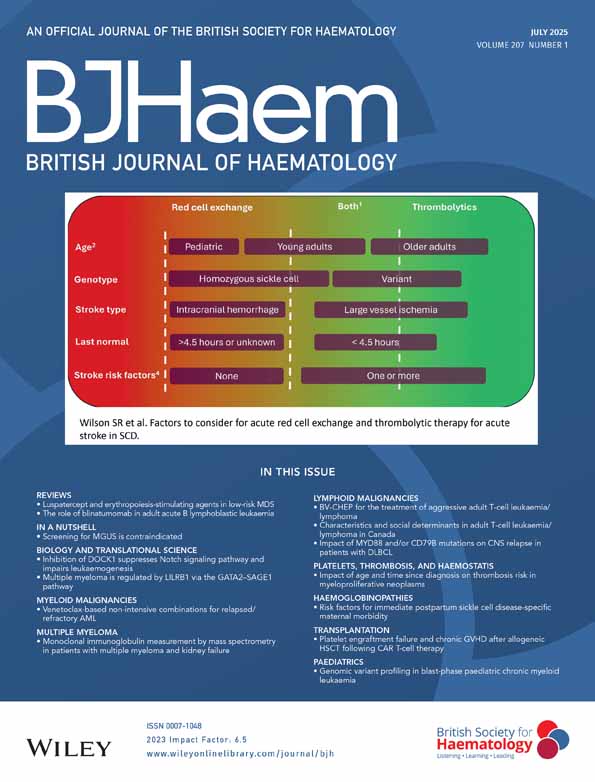The G1691 → A mutation of factor V, but not the G20210 → A mutation of factor II or the C677 → T mutation of methylenetetrahydrofolate reductase genes, is associated with venous thrombosis in patients with lupus anticoagulants
Abstract
Arterial and venous thrombosis are the most common manifestations of antiphospholipid syndrome. To investigate whether genetic determinants contribute to their thrombotic risk, we studied the prevalence of the G1691 → A mutation in the gene coding for factor V, the G20210 → A mutation in the prothrombin gene and the C677 → T mutation in the methylenetetrahydrofolate reductase gene in 152 patients with lupus anticoagulants. One hundred and twenty-eight cases (84%) also had increased titres of anticardiolipin antibodies. History of thrombosis was present in 96 patients (63%); 67 suffered from venous thrombosis only, 23 cases had arterial thrombosis only, six patients had both venous and arterial thrombosis. Five patients were heterozygous for the G1691 → A mutation in the factor V gene (3%). All of them (100%) suffered from venous thrombosis compared with 68 out of the 147 cases without the mutation (46%) (P = 0.0474). The prevalence of the G20210 → A mutation in the prothrombin gene was evaluated in 145 patients; eight of these patients were heterozygous (5%). Four of these patients (50%) experienced venous thrombosis compared with 65 out of the 137 patients without the mutation (47%) (P = ns). Neither mutation was associated with arterial thrombotic events. No patient carried both mutations. The C677 → T mutation in the methylenetetrahydrofolate reductase gene was assessed in 83 patients; 15 of them (18%) were homozygous and 37 (44%) were heterozygous. There was no significant association between the status of the mutation and history of venous and arterial thrombosis. No significant correlation was found among the three groups. In conclusion, only the G1691 → A mutation in the factor V gene was associated with the thrombotic risk of patients with lupus anticoagulants.




